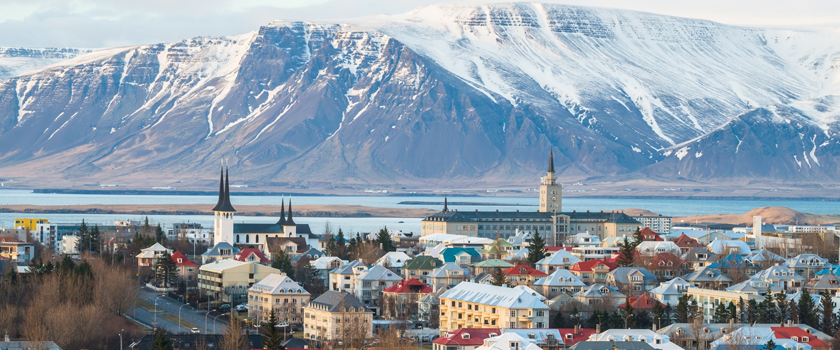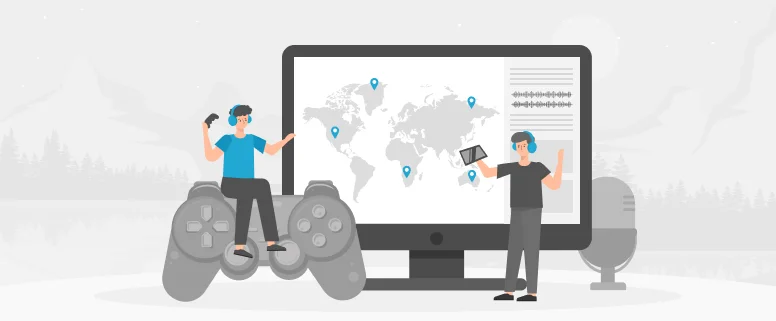Iceland is located on the geologic border between North America and Europe. It is a land of different climates, cultures, and geography. Iceland enjoys a very high GDP per capita, world-class education, and alluring beauty that attracts tourists from all around the world. It is considered to be the best place to start your education and expand your business.
If you don’t speak their native language, then you can’t continue your education and expand your business. Moreover, you can’t get a job. So let’s find out which language is spoken in Iceland.
Which Languages are spoken in Iceland?
The official language of Iceland is Icelandic. It is spoken by around 340,000 inhabitants. The immigrants that came to Iceland speak multiple languages like 2.71% of the population speaks Polish, 0.32 of the population speaks English and 0.43% speaks Lithuanian. In 2011, parliament adopted the law that made Icelandic the official language in Iceland.
The Icelandic deaf community also represented Icelandic sign language as a minority language. The sign language has given constitutional rights and protections as a traditional Icelandic language. At the time of Danish rule, Danish is a minority language in Iceland. In the post-independence era, it is spoken by home residents. Spanish, French, Swedish, and Norwegian is also a mother tongue of a small percentage of the population.
The History of Icelandic Language
Icelandic is a North Germanic Language. It has roots in Faroese, Swedish, Danish, and Norwegian. North Germanic languages are from the subgroup of Indo-European languages and share its existence with West Germanic languages. English speakers can have an advantage because English is one of the West Germanic languages and it shares cognates and other similarities with the Icelandic languages.
In 874 AD, Ingolfr Arnason who was a Norwegian explorer made the first government in Iceland. This government has formed the oldest functioning legislative assemblies. After that, the country remained under Norwegian protection for some time. After that Danish rule has taken over Iceland. They remained distinct culturally and geographically. Iceland is greatly impacted by Scandinavian heritage and languages.
The Icelandic language has a very ancient vocabulary. The island is geographically isolated from main Europe so the Icelandic language is very conservative as compared to other Nordic tongues. The linguistic purity of Icelandic is shown when words for innovative objects are not found.
The other important thing about the Icelandic language is that it has retained two characteristics that are from the old Germanic language, they are Thorn and Eth. The Iceland government and academia feel privileged to preserve the Icelandic language as a part of their culture.
Is it Hard to Learn the Icelandic Language?
The US Department of States school of language studies classifies hard languages on the notion that how easily the English speakers can learn it. Although the Icelandic language has a Germanic history, it is ranked in category iii because of cultural and linguistic nuances from English.
The Icelandic language becomes a difficult language to learn if your mother tongue and the other languages, you are exposed to are different. Icelandic pronouns, adjectives, and nouns have four cases. Three grammatical genders, Adjectives modifies the gender, and verbs have three forms that include two numbers, two types of tenses, and two finite moods.
It has been observed that many foreigners find Icelandic a difficult language to learn, and they feel hesitant in speaking with natives. The reason behind it is that Icelanders are not tolerant of grammatical errors, foreign accents, and signs. Iceland is a monolingual society, so they are not used to seeing foreigners trying to speak the Icelandic language.
Moreover, someone neither tries to snub them because of their harsh attempt. Practice makes the man perfect, so while learning the Icelandic language, you need to use it in different situations so that you mitigate all the hurdles. You will be surprised to know that Icelanders switch to English if they feel that the person who is speaking is not proficient in Icelandic.
One can find language easy to learn if it is similar to its mother language. The closest language to Icelandic is Faroese. People who can speak Faroese can easily learn the Icelandic language. Similarly, Spanish people can feel more difficulty in learning Swedish than learning Italian.
Modern Icelandic
Whether we talk about grammar, vocabulary, or orthography, the Modern Icelandic language has preserved the Scandinavian tongue in the best way. It has retained its three genders, masculine, feminine, and neuter. The four cases for nouns, genitive, nominative, dative, and accusative.
It has also taken some loanwords from Latin, Celtic, Roma, and Danish. The language purism of the 19th century has replaced foreign words with Icelandic forms. Icelanders try their best to make new words rather than borrow from foreigners.
Wrapping Up
Do you want to start your business or want to study then Iceland is the best option? To start a business or to study, you need to learn the Icelandic language. Although it seems a daunting language, according to the Icelandic Ministry of Education, there are around 200 thousand people from around the globe who are learning this language.
In case you need the translation of your business or education documents, CCJK is here for you. We are providing impeccable Icelandic language translation with swift turnaround time and economical rates.
Resources:
How Many Languages are Spoken in China
How Many Languages are Spoken in India
What Languages are Spoken in Brazil?
What Languages are Spoken in Israel?
What Language is spoken in Iceland?
What Language is Spoken in Egypt
What Languages Spoken in the Philippines
Most Spoken Languages in Africa
Most Endangered Languages in the World
Official Languages of the United Nations
most useful languages for Business?
Exploring the Languages of Future







